

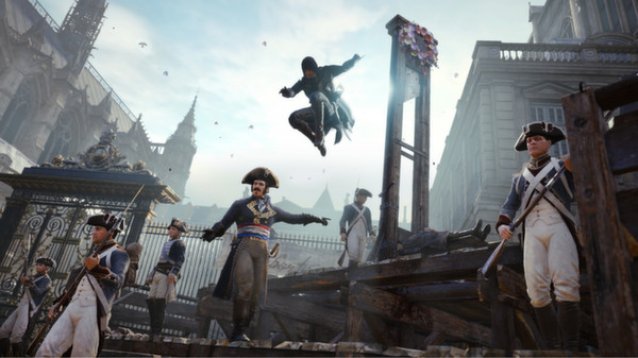
Assassin’s Creed Unity (AC:U from this point on) is Ubisoft’s flagship series first full foray into next-gen territory. It is a noble attempt to breathe fresh life into what could be considered a repetitive IP.
Fittingly in a series about delving into and rediscovering the past, Unity tries its best to shake the dust off of old mechanics and reinvigorate itself. In fact, except in a few nods there is little connecting this work to previous ones. This goes a long way towards making Unity feel like its own game. On the surface, each entry is more or less the same as every other game. You have all the same general pieces: A story that takes place in a past era of some renown, one that takes place in the present (well in the near-future), a lot of stabbing people in secret, a lot of tailing sequences, and a lot of stabbing people fairly openly.
AC:U is not the sum of its parts. Unity, at times, feels less like a game and more like several different experiments being jammed together. Virtually everything in this game is a reworked version of previous elements: combat, stealth, and free-running. The three basic pillars of the series’ gameplay has been re-engineered. Assassin’s Creed has been reforged.
Revolutionary France is rendered beautifully. At least when the prodigious slowdown doesn’t cause the camera to stutter horribly or when crowds of generic people fill the entirety of the space. The upside here is Paris in and of itself is gigantic. When you climb to the top of Notre Dame or any other viewpoint you get a sense of how much of the city is explorable. All of it is explorable. And it is vast. It is easy to spend hours crawling through the many areas and getting caught up doing crowd events. A few areas at the very least are always filled with crowds that number in the hundreds. A few sequences look like they break into the thousands. This is the first Assassin’s Creed to really give the sense of a living city.
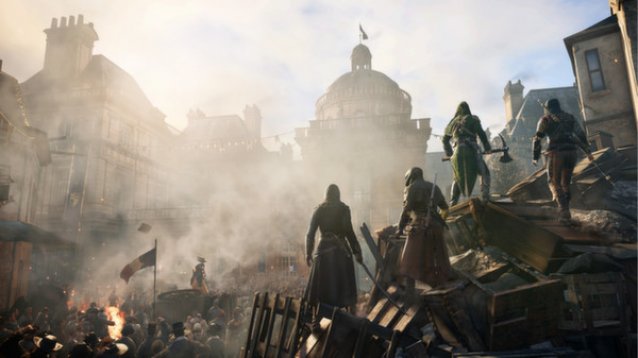
One of the largest graphical changes is also the least immediately noticeable. Previous characters like Connor or Ezio all felt roughly the same. This can be hand waved away by saying that as ancestors of Desmond Miles it could be expected that they would all have similar builds and movement styles. More reasonably this could be explained by developers reusing resources. Arno however moves very differently than other playable assassins. He has more flourish, more variety in climbing method. Arno’s combat animations also have been updated significantly. He does not traverse the playing space quite like Edward Kenway did. Arno’s flow across rooftops has the vibe of a stalking cat.
Playing as Arno has a very distinct feel. He is much easier to lose track of for a second. This is especially noticeable when the camera pulls back a bit because you are in a crowd of hundreds of people protesting. He doesn’t have the same sense of power as previous protagonists have. He’s slighter, less resilient, but very mobile. The camera doesn’t quite center on him. You are given a much greater depth of field and as a result your eyes focus beyond him when stumbling around the city.
Combat is discouraged in this game. A couple of enemies are easy to dispatch in direct combat if you catch them off guard but as you add combatants, the players odds significantly drop. It quickly becomes standard operation when discovered to run and hide. In previous games you could easily fight every guard that arrived and in fact each game would emphasize combat. This is despite the fact that the series was supposed to be about stealthy warriors disappearing after taking out their targets. Gone from the game is the easy counter kill. Once combat becomes open, every enemy becomes a viable threat. Taking a hit, especially early on, leaves you open to getting killed very quickly. This is a welcome change from the almost beat’em up atmosphere of the series.
Stealth in this game has been completely revamped. In previous games you were to stay entirely out of sight of enemies or an alarm be raised. The choice then becomes you either take the time to fight them off or hide until they stop looking for you. New to the series is a cover mechanic. You can now sneak by guards instead of detouring around them. This changes the flow in sequences where you must find someone within a building.
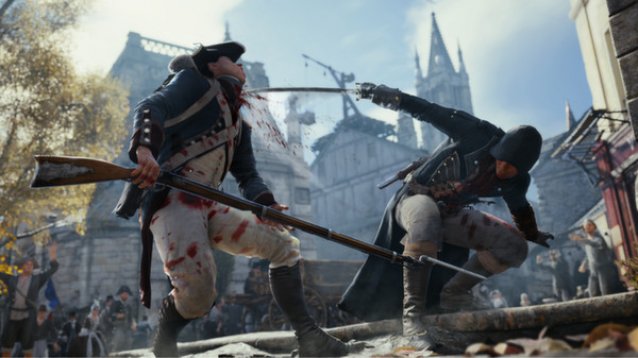
These changes seem very minor on the surface. All placed together it becomes a very interesting game in the making. It allows AC:U to be the kind of open-world game it was always intended to be.
However this is kind of where the game goes off the rails.
AC:U is a lot of great ideas that got poorly stitched together. Even the story feels like an afterthought. I won’t spill too much of the story but it was quite straightforward and pretty dry. There is one event between what should be enemies that turns out to be actual altruism instead of what seems like a gambit for the future. Altogether, the plot is largely forgettable. It doesn’t really spend the kind of time or energy as previous games in laying down a theme, which is a shame since Revolutionary France is packed with potential themes and concepts to illustrate. Instead the game focuses on a star-crossed romance that unfolds terribly predictably.
The rest of the game is kind of like this. All of the individual elements of the game when looked at are great and work well, put them together and it all becomes less interesting.
Climbing buildings is great, until it suddenly gets buggy and you jump away from the wall instead of jumping to another hand hold. Combat is great until you try to dodge or parry and the game delays your input due to buggy lag and you get stabbed until desync. Stealth is great until the crowd stutters the game and you find yourself bumping into a guard, who manages to alert all the guards in the area despite you still being trapped in a low frame rate world.

Co-op was another part of the game that when working correctly was a lot of fun. Each co-op mission feels like fully realized ideas and not like watered down side offerings. The fact that multiplayer maintains the feeling of the AC universe is actually quite impressive. However I had a lot of trouble with matchmaking the the point where I only managed to finish a couple of missions. With friends it will likely be a lot smoother and far less laborious. The ones I did play were pretty interesting and required a lot of care from each player. With a solid team working together, I have no doubt that players will get a good sense of what a well functioning brotherhood would feel like.
The co-op feature is also the reason that there are no female playable assassins in this game. Each player is Arno in co-op. It’s somewhat over the top to suggest that they did this to make some meta-point but its barely addressed and somewhat ignored. It’s a convenient way to dismiss the idea that they should have invested the time and resources into creating a female character. They still get to have their multiplayer element but without having to do anything extra.
Helix, booster packs and the companion app are all extra features of the game. They are unnecessary to enjoy the story of the game. However, in order to unlock all content in the game you need to download the app and join an online tracking system. (Assassin’s Creed: Initiates)
It’s worth mentioning that in the game there are three types of chests: the first is the normal chest you are used to, the second requires the use of the companion app to unlock, and the third requires you join the previously mentioned Initiates. Helix is a buyable currency that allows you to bypass some items normal purchase price and also making buying boosts possible. Boosts are just that, temporary boosts to your character’s stats lasting three minutes.
AC:U has its problems. Some are inherent to the design, some can be rectified by patches and some will get much better in the next iteration. This game made bold changes to an established formula and not everything worked. It seems like Unity will be a great relaunch point, just like the original Assassin’s Creed was. But for now, it’s not what it could have been. This is going to be both a blessing and a curse to the series going forward.
6/10
A copy of the game was purchased by the reviewer.
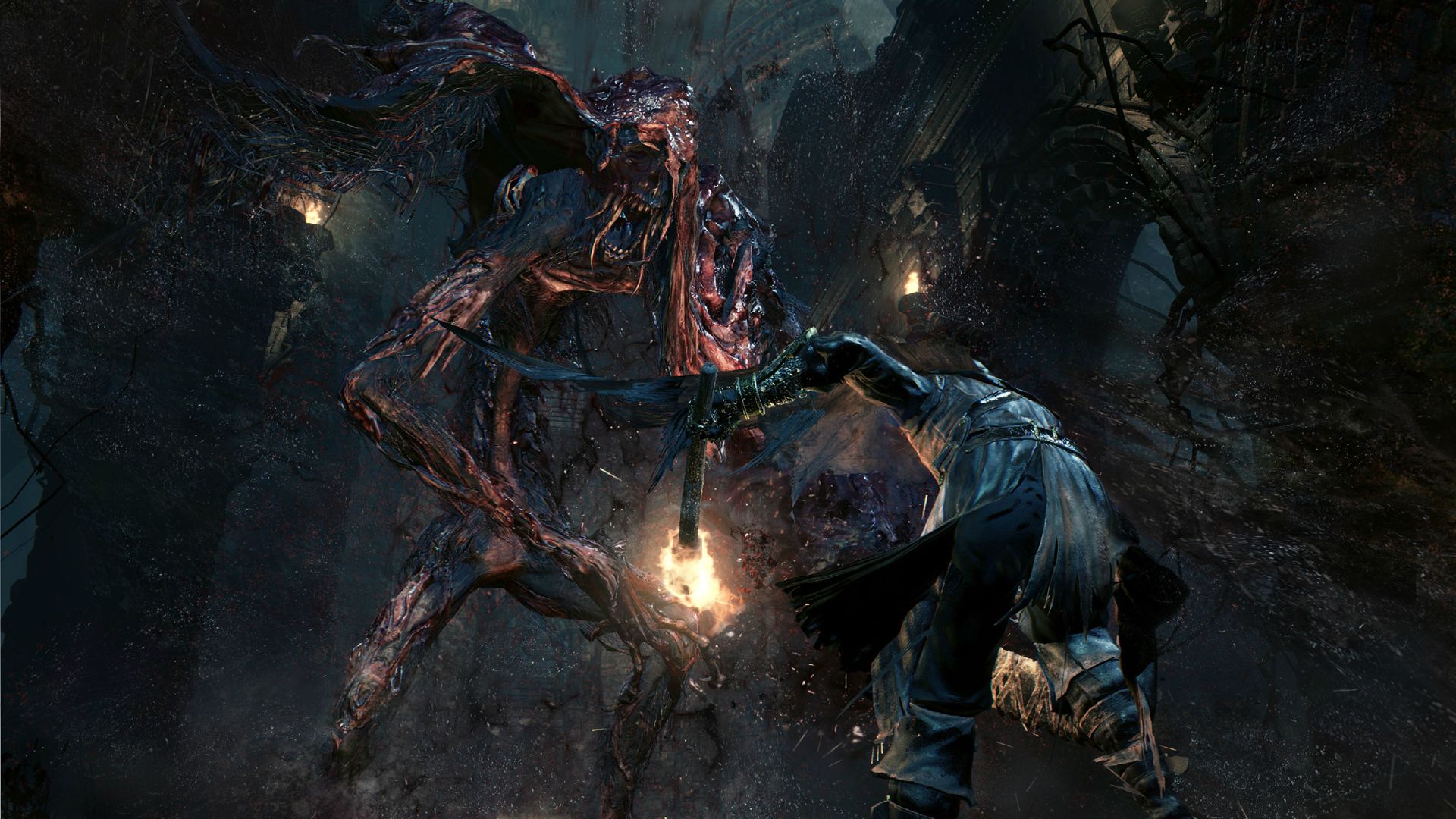
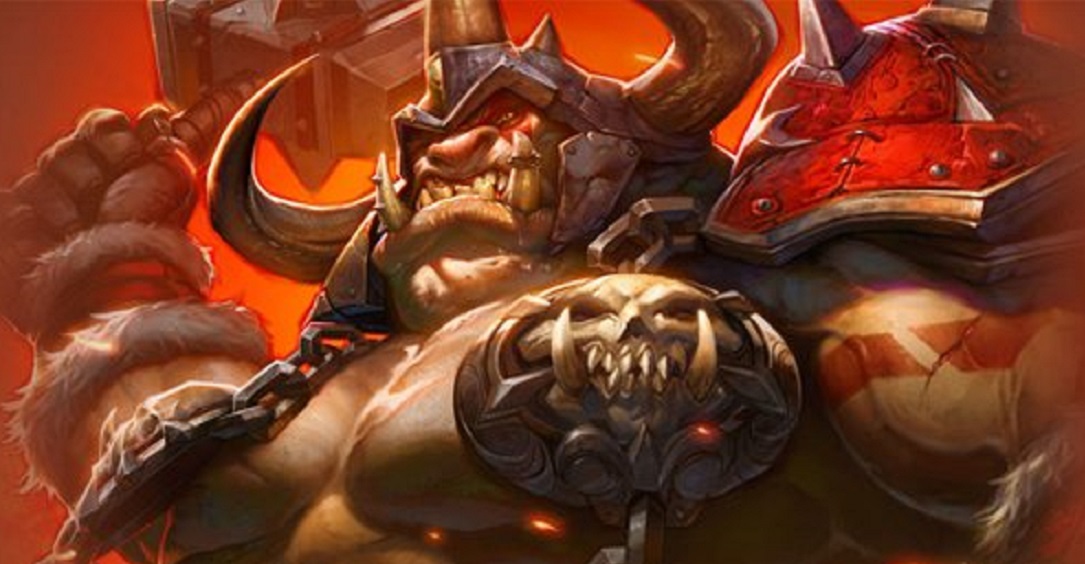
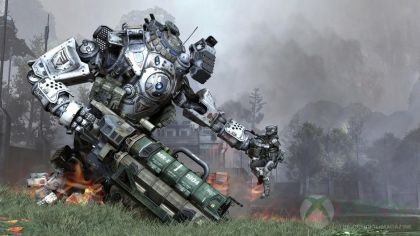
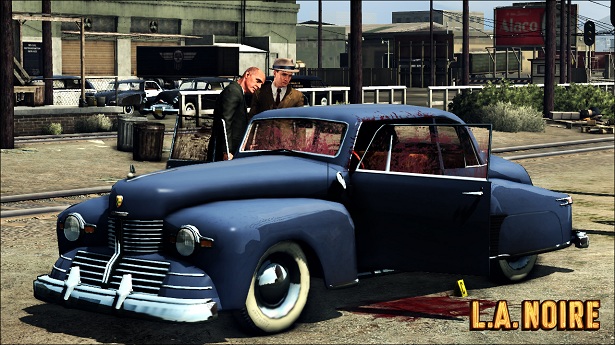
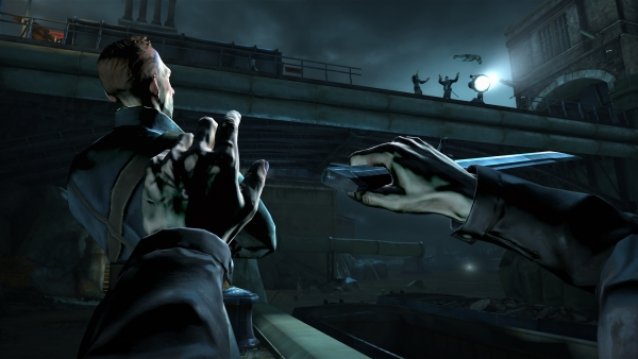 Top 10 Stealth Elements in Games That Make No Sense
Top 10 Stealth Elements in Games That Make No Sense The Walking Dead: Season 2 – Episode 1 Walkthrough
The Walking Dead: Season 2 – Episode 1 Walkthrough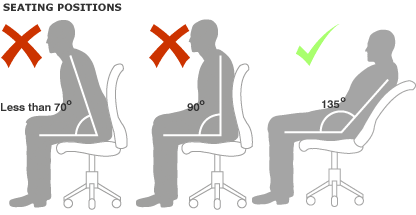 Sitting Up Straight Is Bad: The Right Way to Sit at a Desk
Sitting Up Straight Is Bad: The Right Way to Sit at a Desk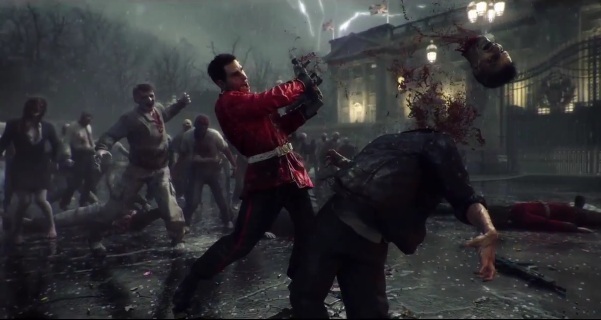 Zombi (PS4): CCTV Junction Box locations - find all security cameras
Zombi (PS4): CCTV Junction Box locations - find all security cameras 7 Essential Fairy Fencer F Beginner Tips
7 Essential Fairy Fencer F Beginner Tips